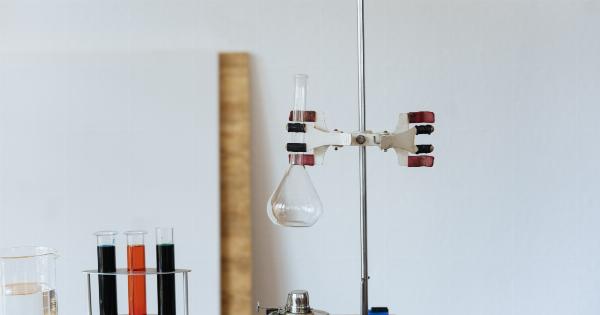Regular Pap tests, also known as Pap smears, are an essential part of preventive healthcare for women. They are designed to detect any abnormalities in the cervical cells and help diagnose potential issues, such as cervical cancer.
While scheduling and preparing for a Pap test, it is crucial to be aware of certain guidelines and precautions, including the importance of abstaining from sexual intercourse before the test. In this article, we will explore why having sex before a Pap test is a big no-no and how it can affect the accuracy and results of the test.
What is a Pap Test?
A Pap test is a simple and quick procedure performed by a gynecologist or healthcare provider to screen for cervical cancer and identify any precancerous or abnormal cells in the cervix.
During the test, a small sample of cells is gently collected from the cervix and sent to a laboratory for examination. The results of the Pap test can provide early detection of cervical abnormalities, allowing for timely intervention and treatment.
Why Abstaining from Sex is Important Before a Pap Test
It is crucial to avoid sexual intercourse, including vaginal, anal, or oral sex, for at least 24-48 hours before a Pap test.
Engaging in sexual activity before the test can introduce substances, such as semen or lubricants, into the cervix, which may interfere with the accuracy of the results.
Impact on Test Accuracy
Having sex before a Pap test can lead to various issues that may impact the accuracy of the results. These include:.
1. Presence of Sperm
Semen contains enzymes and other substances that can interfere with the visualization and examination of cervical cells under a microscope.
It may obscure abnormal cells or lead to misinterpretations, potentially resulting in false-negative or false-positive results.
2. Blood Contamination
Engaging in sexual intercourse can sometimes cause small tears or abrasions in the cervix, leading to bleeding. If blood is present during the Pap test, it may make it difficult to obtain a clear sample or obscure the visualization of abnormal cells.
3. Inflammation and Increased Cell Shedding
Sexual activity can cause temporary inflammation of the cervix and increase the shedding of cervical cells.
This can make it challenging to differentiate between normal cell changes due to sexual activity and abnormal changes associated with precancerous or cancerous conditions.
4. Introducing Outside Substances
Engaging in sexual intercourse before a Pap test can introduce outside substances to the cervix, such as lubricants or spermicides.
These substances may alter the cellular environment and interfere with the accurate interpretation of the Pap test results.
Recommended Precautions
To ensure the accuracy and reliability of your Pap test, it is advisable to follow these recommended precautions:.
1. Abstain From Sexual Activity
Refrain from engaging in any form of sexual activity, including vaginal, anal, or oral sex, for at least 24-48 hours before your scheduled Pap test.
This timeframe allows the cervix to return to its normal state and reduces the chances of interference during the test.
2. Discuss Your Concerns
If you have any concerns or questions regarding sexual activity before a Pap test, it is essential to discuss them with your healthcare provider.
They can provide personalized guidance based on your individual circumstances and address any worries you may have.
3. Practice Safe Sex
Practicing safe sex by using condoms can help minimize the introduction of foreign substances into the cervix.
However, it is important to note that condoms do not provide complete protection against all potential substances that may interfere with the test results.
4. Follow Your Healthcare Provider’s Instructions
Always follow any specific instructions provided by your healthcare provider regarding any preparations or precautions before your Pap test. They may have additional recommendations based on your medical history or specific needs.
The Importance of Regular Pap Tests
While avoiding sexual intercourse before a Pap test is crucial for accurate results, it is equally important to emphasize the significance of regular screenings.
Pap tests play a vital role in detecting cervical abnormalities early on, enabling timely medical intervention and treatment, if necessary. Regular screening, in alignment with your healthcare provider’s recommendations, helps reduce the risk of developing cervical cancer and increases the chances of successful outcomes.
Conclusion
Abstaining from sexual intercourse before a Pap test is essential to ensure accurate and reliable results.
It helps minimize the introduction of substances that may interfere with the examination of cervical cells, such as semen, blood, or outside lubricants. Following the recommended precautions, refraining from sexual activity for at least 24-48 hours before the test, and discussing any concerns with your healthcare provider are crucial steps in optimizing the accuracy and effectiveness of your Pap test.
Regular screenings remain a critical component of gynecological health, as they aid in the early detection and prevention of cervical abnormalities.





























